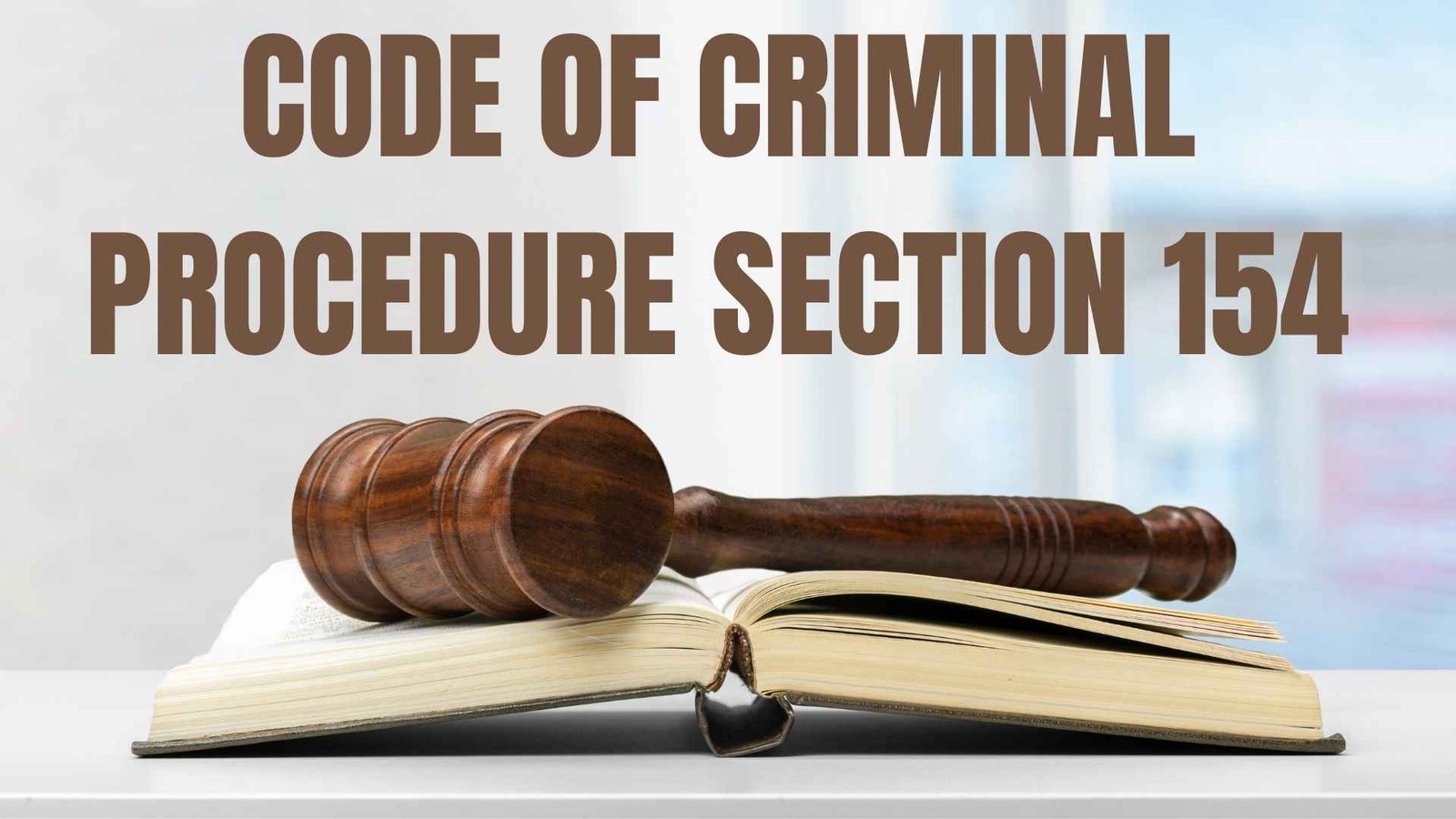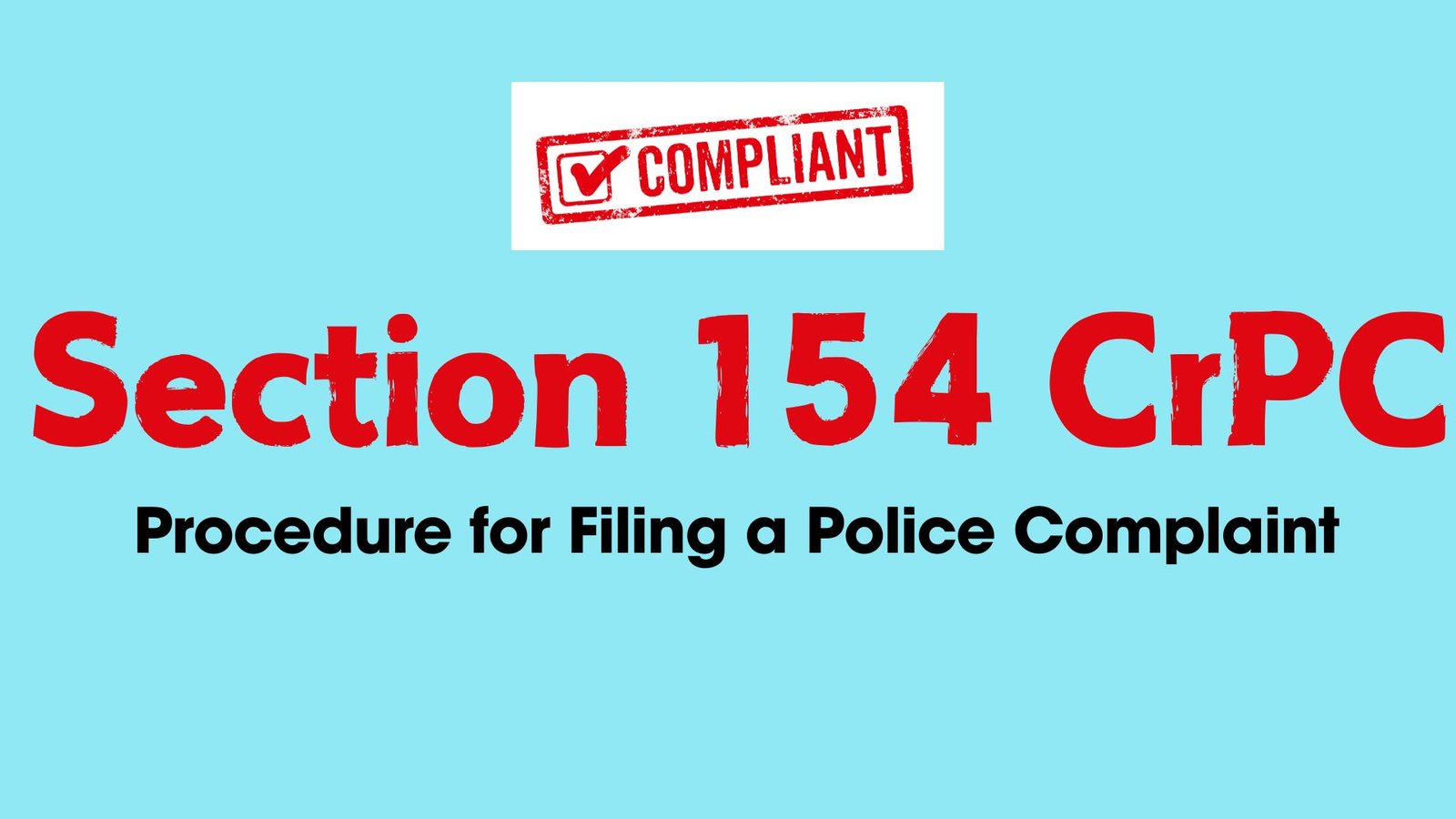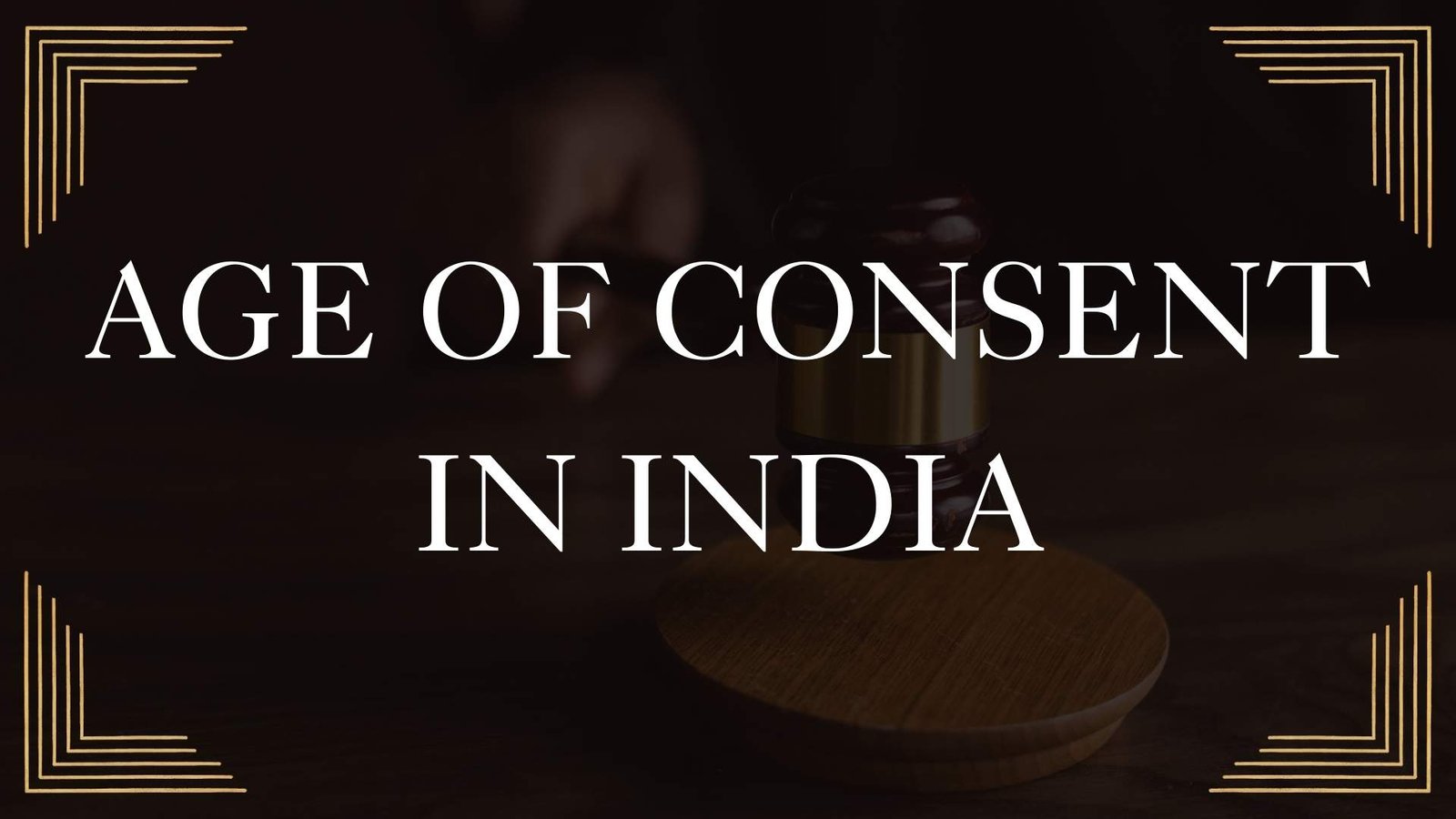On this page you will read detailed information about Section 154 CrPC
As you navigate the complex legal landscape of India, understanding Section 154 of the Code of Criminal Procedure (CrPC) is crucial. This pivotal provision forms the foundation of the criminal justice system, outlining the process for reporting cognizable offenses to law enforcement. Whether you’re a legal professional, law student, or concerned citizen, grasping the intricacies of Section 154 is essential for comprehending how criminal cases are initiated and pursued. In this article, you’ll delve into the key aspects of Section 154, exploring its significance, implementation, and impact on the Indian criminal justice system. Prepare to unravel the complexities of this fundamental legal concept and its role in upholding justice.
What is Section 154 of the CRPC?
Section 154 of the Code of Criminal Procedure (CrPC) in India is a crucial provision that outlines the procedure for recording a First Information Report (FIR) when a cognizable offense is reported. This part is essential to starting the criminal justice process since it starts the investigation.
Key Components of Section 154 CRPC
The primary purpose of Section 154 CRPC is to ensure that information about cognizable offenses is properly recorded and acted upon by law enforcement. The officer in charge of a police station is required to do the following when someone reports a cognizable offense:
- Reduce the information to writing if given orally
- Return the recorded data to the informant by reading it.
- Put the information’s content in a certain register.
- A free copy of the recorded data should be given to the informant.
Special Provisions for Vulnerable Victims
Section 154 CRPC includes specific provisions to protect vulnerable victims:
- A woman police officer or any female officer must record information about offenses against women under specific sections of the Indian Penal Code.
- In cases involving temporarily or permanently mentally or physically disabled persons, the recording must be done at their residence or a convenient place of their choice, in the presence of an interpreter or special educator. This process must be videographed.
Recourse for Refusal to Record
The informant has the right to submit the information in writing to the Superintendent of Police if an officer declines to record it. The Superintendent may then investigate the case directly or order an investigation to be conducted.
By understanding Section 154 CRPC, citizens can better navigate the initial stages of the criminal justice system and ensure their rights are protected when reporting cognizable offenses.
When Does Section 154 CRPC Apply?
Filing a First Information Report
Section 154 CRPC in India comes into play when information about a cognizable offense is reported to the police. This clause requires that such information be documented in writing and referred to as the First Information Report (FIR). According to legal experts, the FIR serves as the foundation for initiating the criminal investigation process.
Conditions for Application
The application of section 154 CRPC is specific to cognizable offenses. These are crimes where the police can make arrests without a warrant. When such information is provided orally to the officer in charge of a police station, they are obligated to reduce it to writing. As per the Code of Criminal Procedure, the officer must read the written information back to the informant and enter its substance into an official record book.
Special Provisions
In cases involving offenses against women or disabled persons, section 154 CRPC stipulates additional requirements. For instance, if a woman reports an offense under specific sections of the Indian Penal Code, the information must be recorded by a female police officer. Similarly, for persons with disabilities, the recording should take place at their residence or a convenient location, with the presence of an interpreter or special educator, and must be videographed.
Refusal to Record
If a police officer refuses to record the information under section 154 CRPC, the informant has recourse. They can send the substance of the information in writing to the Superintendent of Police, who may then investigate the case or direct an investigation to be made. This provision ensures that valid complaints are not dismissed without proper consideration.
Procedure Under Section 154 CRPC
Filing the First Information Report (FIR)
Section 154 of the Code of Criminal Procedure (CrPC) outlines the process for recording a First Information Report (FIR) in cases of cognizable offenses. When information about such an offense is provided to the officer-in-charge of a police station, they are duty-bound to record it. This can be done in writing or vocally.
If it is delivered verbally, the officer has to write it down, read it back to the informant, and record the information in a specific register. The informant then signs the written information, and a free copy is provided to them.
Special Provisions for Vulnerable Victims
In cases involving offenses against women under specific sections of the Indian Penal Code, the information must be recorded by a woman police officer or any woman officer. For victims who are temporarily or permanently mentally or physically disabled, the recording must take place at their residence or a place of their choice, with an interpreter or special educator present. This process must be videographed.
Refusal to Record and Alternative Actions
The person who feels wronged may submit the information in writing to the Superintendent of Police if an officer declines to record it. The Superintendent may then investigate the case personally or direct a subordinate to do so. Alternatively, the informant can file an application before a magistrate or approach the High Court.
Importance and Use of FIR
The FIR serves multiple purposes in the legal process. It can be used to corroborate the informant’s testimony, cross-examine them, or impeach their credit. In certain cases, it may be considered a relevant fact or even a dying declaration. However, the informant has a duty to provide accurate information, as false reporting can lead to prosecution.
Data that Was Recorded For the FIR (First Information Report)
The First Information Report (FIR) is a crucial document that initiates the criminal justice process under section 154 crpc in India. When filing an FIR, it’s essential to include specific details to ensure a thorough investigation.
Essential Components of an FIR
An FIR must contain several key elements to be considered complete and actionable. According to legal experts, these include:
- Name and address of the police station
- Date and time of the incident
- Complainant’s personal information
- Description of the accused (if known)
- Summary of the alleged offense
It’s crucial to provide as much accurate information as possible to aid the investigation process.
Recording the Information
The official in charge is required by section 154 crpc to document the information that the complainant provides. If given orally, the officer must transcribe it and read it back to the informant for verification. The informant then signs the statement, confirming its accuracy.
Additional Details
While not mandatory, including the following information can significantly assist the investigation:
- Names and contact details of witnesses
- Any tangible proof or records pertaining to the offense
- Suspected motive (if known)
Though it doesn’t have to cover every little detail, the FIR should highlight the main points of the information that was received. The primary goal is to provide enough information to initiate a thorough investigation into the alleged cognizable offense.
In the previous post, we had shared information about Legal Age of Consent in India so read that post also.
Importance of Filing an FIR Under Section 154 CRPC
Initiating the Criminal Justice Process
Filing a First Information Report (FIR) under section 154 CRPC is a critical step in the Indian criminal justice system. It serves as the starting point for police investigations and legal proceedings. According to legal experts, the FIR is an accurate record of the initial information received about a cognizable offense, making it a fundamental document in criminal cases.
Protecting Citizens’ Rights
The right to file an FIR is a crucial safeguard for citizens. It ensures that law enforcement takes cognizance of reported crimes. If the police refuse to register an FIR, individuals can approach higher authorities or the courts for redress, maintaining accountability in the system.
Preserving Evidence and Testimony
Timely filing of an FIR under section 154 CRPC helps preserve vital evidence and eyewitness accounts. While delay in filing is not necessarily fatal to a case, it can raise suspicions and affect credibility. Prompt reporting ensures that crucial details are recorded accurately, benefiting both the investigation and subsequent legal proceedings.
Facilitating Swift Action
When there is a cognizable infraction, law enforcement can act quickly thanks to a formal complaint. It allows police to make arrests without warrants in certain cases, expediting the process of bringing perpetrators to justice. This swift response can be crucial in preventing further crimes and protecting potential victims.
Providing Legal Support for Victims
Filing an FIR empowers victims by officially acknowledging their complaint within the legal system. It serves as a basis for seeking justice and can be used to corroborate testimony during trials. The FIR’s contents can be utilized to cross-examine witnesses and refresh their memory, making it an invaluable tool in the pursuit of justice.
Duties of the Police Under Section 154 CRPC
The Code of Criminal Procedure (CrPC), Section 154, specifies what police personnel must do when they learn of crimes that are punishable by law. Understanding these duties is crucial for both law enforcement and citizens to ensure proper handling of criminal complaints.
Recording the First Information Report (FIR)
Any information on a cognizable offense must be recorded in writing by the police station official in charge. The criminal justice procedure is started with this written document, called the First Information Report (FIR). The police are obligated to register the FIR promptly, regardless of jurisdiction or the perceived validity of the complaint.
Special Provisions for Vulnerable Victims
In cases involving certain offenses against women, such as rape or sexual assault, section 154 crpc mandates that a woman police officer or any woman officer must record the information. For victims with temporary or permanent mental or physical disabilities, the police must record the statement at the victim’s residence or a convenient location, with the assistance of an interpreter or special educator.
Providing a Copy and Ensuring Transparency
The police officer is required to provide the informant with a complimentary copy of the FIR. This ensures transparency in the process and allows the complainant to verify the accuracy of the recorded information. Additionally, the police are required to inform the complainant about the progress of the investigation, maintaining open communication throughout the legal proceedings.
Handling Refusals and Complaints
If an officer refuses to record the information, the informant has the right to send the substance of the information in writing to the Superintendent of Police. The Superintendent may then investigate the case personally or direct a subordinate officer to conduct the investigation, ensuring that valid complaints are not overlooked or dismissed without proper consideration.
Victim’s Rights in the Section 154 CRPC Process
Empowering Victims of Sexual Offenses
The Criminal Procedure Code (CrPC) in India has made significant strides in protecting the rights of victims, particularly in cases of sexual offenses. Section 154 of the CrPC now includes provisions that empower victims who are temporarily or permanently mentally or physically disabled. These individuals can have their First Information Report (FIR) recorded at their residence or a place of their convenience, ensuring their comfort and safety during this crucial initial step.
Immediate Recording of Statements
To further safeguard victims’ rights, Section 164(5A) of the CrPC allows for the immediate recording of the victim’s statement before a Judicial Magistrate. This provision is particularly important as it captures the victim’s account at the earliest stage, reducing the likelihood of inconsistencies or changes in testimony later on. If needed, an interpreter or special educator can assist in this process, ensuring that the victim’s voice is accurately heard and recorded.
Access to Medical Treatment
The CrPC has also prioritized the medical care of victims. Section 357C mandates that all hospitals, whether private or government-run, provide free first-aid or medical treatment to victims of sexual offenses or acid attacks. This provision ensures that victims receive immediate medical attention without any financial burden. Additionally, hospitals are required to promptly inform the police, facilitating a swift initiation of the legal process.
Right to Information and Participation
Victims’ rights extend beyond the initial reporting stage. According to legal experts, the informant (often the victim) has the right to receive a copy of the FIR and be kept informed about the progress of the investigation. Moreover, the victim has the right to be heard by the magistrate when the police report is being considered, ensuring their continued involvement in the legal proceedings.
By incorporating these provisions, section 154 crpc in India has taken significant steps towards creating a more victim-centric approach in the criminal justice system. However, the effectiveness of these measures relies heavily on their proper implementation and continued monitoring by the authorities.
Challenges and Limitations of Section 154 CRPC
Reluctance to Register FIRs
Police resistance to filing First Information Reports (FIRs), particularly where powerful people are involved, is one of the main obstacles to the implementation of section 154 crpc in India. This can lead to delays in investigation and denial of justice for victims. The discretionary power given to police officers often results in arbitrary decisions, compromising the very purpose of Section 154 CRPC.
Procedural Irregularities
Another significant limitation is the occurrence of procedural irregularities. These may include incomplete or inaccurate recording of information, delays in registering FIRs, or failure to provide copies to complainants. Such irregularities can severely impact the credibility and evidentiary value of FIRs, potentially derailing the entire criminal justice process.
Lack of Accountability and Transparency
The implementation of Section 154 CRPC often suffers from a lack of transparency and effective mechanisms to hold police accountable for their actions or inactions. This creates a systemic issue where complainants have limited avenues for redress when faced with police misconduct or refusal to register FIRs.
Misuse and False Reporting
While Section 154 CRPC is designed to initiate criminal proceedings, it can sometimes be misused. False FIRs filed with malicious intent or for personal vendettas can burden the criminal justice system and potentially harm innocent individuals. Balancing the need for prompt FIR registration with safeguards against misuse remains a significant challenge.
Inconsistent Implementation
The effectiveness of Section 154 CRPC is further hampered by inconsistent implementation across different states and police jurisdictions. This lack of uniformity can lead to confusion and unequal access to justice for citizens depending on their location.
FAQs on Section 154 CRPC: Understanding the Basics
Section 154 of the Code of Criminal Procedure (CrPC) is a crucial provision that outlines the procedure for recording a First Information Report (FIR) when a cognizable offense is reported to the police. This section sets the criminal justice process in motion and serves as the foundation for further investigation.
Anyone who has knowledge about the commission of a cognizable offense can file an FIR, not just the victim. The information can be provided either orally or in writing to the officer in charge of a police station. If given orally, the officer must reduce it to writing, read it back to the informant, and have them sign it.
The informant has several rights under section 154 crpc:
I) Right to receive a free copy of the FIR immediately
II) The right to get updates on the investigation’s progress
III) Right to know if the police decide not to file the FIR after a preliminary inquiry
Additionally, recent reforms have focused on enhancing transparency and improving accessibility for marginalized communities in the FIR registration process.
The police cannot refuse to register an FIR in case of a cognizable offense, except in certain cases like matrimonial disputes or commercial offenses where a preliminary inquiry may be conducted. If an officer refuses to record the information, the informant can submit a written complaint to the Superintendent of Police, who may then investigate the case or direct a subordinate to do so.
Conclusion
As you navigate the complexities of the Indian legal system, understanding Section 154 of the CRPC is crucial. This provision serves as a cornerstone for initiating criminal proceedings and protecting citizens’ rights. By familiarizing yourself with the process of filing an FIR, the duties of law enforcement, and your rights as a complainant, you empower yourself to engage effectively with the justice system. Remember, prompt and accurate reporting of cognizable offenses is not just a legal obligation but a civic duty. Stay informed, assert your rights, and contribute to upholding the rule of law in India. Your awareness and participation play a vital role in ensuring a fair and just society for all.
Disclaimer
The information and services on this website are not intended to and shall not be used as legal advice. You should consult a Legal Professional for any legal or solicited advice. While we have good faith and our own independent research to every information listed on the website and do our best to ensure that the data provided is accurate. However, we do not guarantee the information provided is accurate and make no representation or warranty of any kind, express or implied, regarding the accuracy, adequacy, validity, reliability, availability, or completeness of any information on the Site. UNDER NO CIRCUMSTANCES SHALL WE HAVE ANY LIABILITY TO YOU FOR ANY LOSS OR DAMAGE OF ANY KIND INCURRED AS A RESULT OR RELIANCE ON ANY INFORMATION PROVIDED ON THE SITE. YOUR USE OF THE SITE AND YOUR RELIANCE ON ANY INFORMATION ON THE SITE IS SOLELY AT YOUR OWN RISK. Comments on this website are the sole responsibility of their writers so the accuracy, completeness, veracity, honesty, factuality and politeness of comments are not guaranteed.
So friends, today we talked about Section 154 CrPC, hope you liked our post.
If you liked the information about Section 154 CrPC, then definitely share this article with your friends.
Knowing about laws can make you feel super smart ! If you find value in the content you may consider joining our not for profit Legal Community ! You can ask unlimited questions on WhatsApp and get answers. You can DM or send your name & number to 8208309918 on WhatsApp









